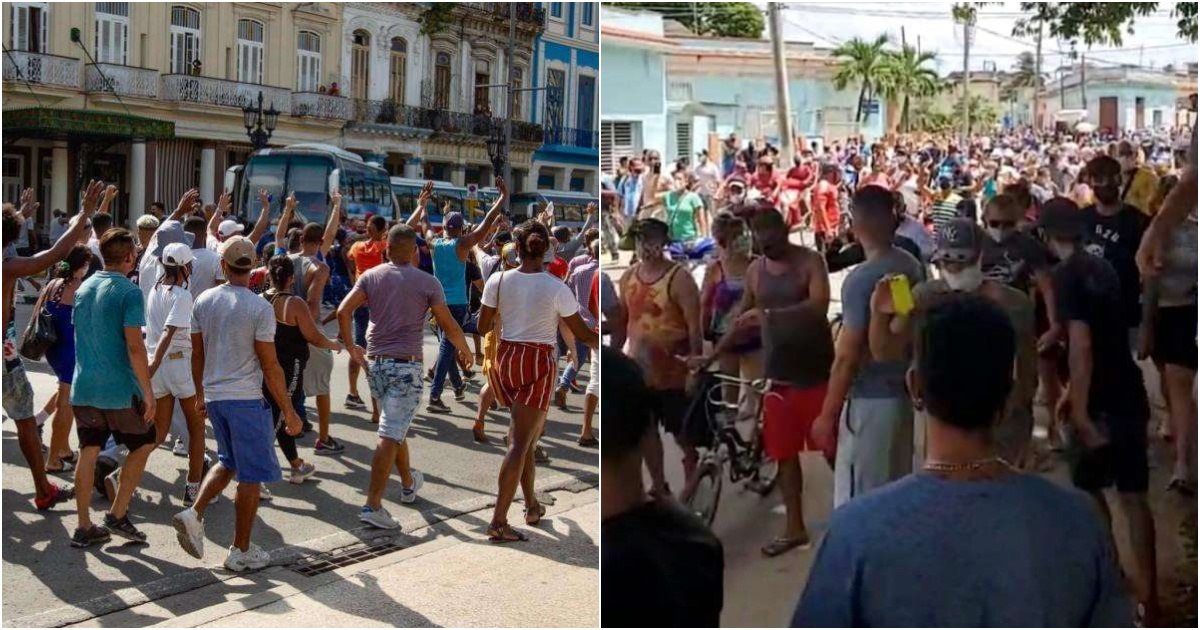
The citizen platform Archipelago He assured that “he will soon announce next steps,” after an official response to his call to the “Civic March for Change” for this November 15.
“The response of the authorities of the Government delivered this Tuesday to the notification for carrying out the Civic March for Change on November 15, it informed the members of Archipiélago that 'legitimacy is not recognized in the reasons they give for the march' and that this 'constitutes a provocation' . Our next steps will be announced shortly,” the citizen platform states on its Facebook profile this Tuesday.
Archipelago this Monday reported what signatories of the letters for the Civic March for Change had been summoned by officials of the Municipal Assemblies from their respective places of residence to “give an official response to said citizen call.”
According to their statement, this Tuesday local governments of Old Havana, Consolación del Sur, Santa Clara, Cienfuegos, Nuevitas, Las Tunas, Holguín and Guantánamo would respond to the notification to carry out this march, under the constitutional protection of the Article 56 of the Constitution of the Republic, which recognizes the rights of assembly, demonstration and association for lawful and peaceful purposes..
However, Alexis Acosta Silva, Mayor of the Administration Council of Old Havana, this Tuesday denied the permission requested for the march called in November, whose purposes he described as "unconstitutional" and "destabilizing," according to statements to the national press.
Acosta Silva, in a letter published by the official Cubadebate portal, addressed to the playwright Yunior García Aguilera, its main organizer, indicated that article 56 of the Constitution, which is cited as the main basis for the request, provides among the requirements for the exercise of the demonstration "respect for public order and compliance with the requirements established by law."
Therefore, in this case, he argued, "legitimacy is not recognized in the reasons given for the march," while adding that the public projection of some of the promoters "with subversive organizations or agencies financed by the US government" They have "the manifest intention of promoting a change in the political system in Cuba."
The “Civic March for Change” was initially called for November 20, but was later brought forward to the 15th, since the regime reported that "on the occasion of Defense Day" a military exercise would be held throughout the country on days 18, 19 and 20 of that month.
"If that day (November 15) the country opens to tourism, then we Cubans will also be able to take to the streets to demonstrate," argued García Aguilera in a virtual press conference, who also considered that the government's announcement constituted a threat. against citizens who wish to join the demonstration.
Dozens of people in several Cuban provinces have notified local authorities of their intention to take to the streets to demonstrate peacefully in Holguín, Havana, Cienfuegos, Guantánamo, Pinar del Río, Camagüey, Las Tunas and Artemisa.
According to the Archipiélago platform, this march would be "against violence, to demand that all rights be respected for all Cubans, for the release of political prisoners and for the resolution of our differences through democratic and peaceful means."
What do you think?
SEE COMMENTS (1)Filed in: